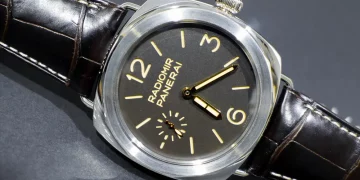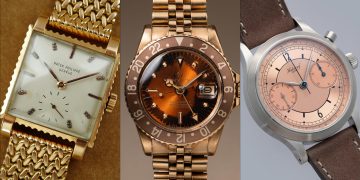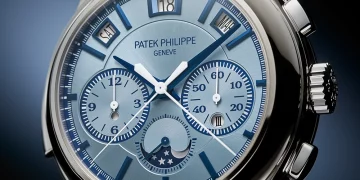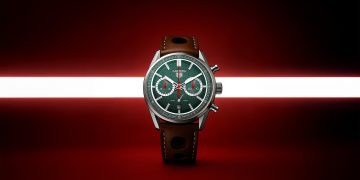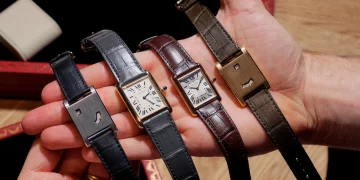Introduction: The Intersection of Tradition and Innovation
In the modern age, the worlds of traditional luxury watches and smartwatches seem to be worlds apart. One is a timeless piece of craftsmanship, rooted in history, while the other represents cutting-edge technology and a vision of the future. But can these two seemingly disparate worlds coexist, or is there a true rivalry at play? Can a smartwatch truly compete with the elegance, prestige, and craftsmanship of a traditional luxury timepiece?
In this article, we will take a deep dive into a comparison between the two: the traditional luxury watch and a high-end smartwatch. We will examine their respective advantages and disadvantages, and explore how each caters to the needs of today’s consumers, each with its own set of priorities and preferences. From heritage and craftsmanship to convenience and tech-driven features, let’s break down the battle of tradition versus technology.
The Appeal of Traditional Luxury Watches
Traditional luxury watches have been coveted for centuries, with Swiss-made brands like Rolex, Patek Philippe, and Audemars Piguet standing as paragons of horological craftsmanship. What makes these watches so desirable? Is it just the history, the intricate movements, or the sheer luxury that these brands exude? Let’s explore.
1. Craftsmanship and Heritage
The most defining characteristic of traditional luxury watches is their craftsmanship. Each piece is meticulously assembled by expert watchmakers, often requiring hundreds of hours of manual labor. The beauty of mechanical watchmaking lies in the fact that the watch functions as a miniature machine, with intricate movements of gears, springs, and jewels working in unison to measure time. Many of these movements are handmade or assembled by a small team of experts, further elevating the sense of exclusivity.
For example, Patek Philippe’s Grand Complications models are some of the most complicated and refined watches in the world, with movements that require multiple years of design and development. Watches like these are not merely timekeepers; they are works of art that carry with them a long-standing tradition of excellence.
2. Timeless Appeal and Legacy
A luxury timepiece is not just a tool but a symbol of status, achievement, and legacy. Owning a Rolex or a Patek Philippe is about more than simply telling the time—it’s about wearing a piece of history on your wrist. These watches are heirlooms passed down from generation to generation, often increasing in value over time. The sheer luxury of owning a traditional watch speaks to a lifestyle that values refinement, exclusivity, and longevity.
In addition, traditional luxury watches hold value in a way that most smartwatches cannot. Due to their limited production and heritage, these watches often appreciate over time, making them a valuable investment for collectors.
3. Elegance and Style
Traditional watches are known for their timeless designs. The simplicity of a classic dress watch or the rugged elegance of a dive watch like the Submariner never goes out of style. These watches are versatile, transitioning seamlessly from formal occasions to casual settings. A luxury watch doesn’t just keep time; it makes a statement. The polished dials, the craftsmanship of the case, and the beauty of the movement are all aspects that give these watches their timeless elegance.
The Rise of Smartwatches
The advent of smartwatches, however, has disrupted the world of traditional timepieces. With brands like Apple, Garmin, and Samsung leading the charge, smartwatches have evolved from simple fitness trackers into powerful devices that serve as our daily companions for everything from health monitoring to communication. But can they compete with the timeless appeal of traditional luxury watches?
1. Technological Innovation
The primary selling point of smartwatches is their integration with modern technology. Unlike traditional watches, smartwatches offer an array of functionalities that go far beyond telling time. From heart rate monitors and GPS tracking to notifications, email checks, music control, and even payment functions, smartwatches have become indispensable for those who are deeply integrated with technology.
For example, the Apple Watch has taken things a step further with its ability to monitor health metrics, track exercise, and even perform ECG readings. These functions offer immediate value to users in ways a traditional watch cannot, especially for health-conscious individuals or those involved in fitness.
2. Convenience and Connectivity
One of the key benefits of a smartwatch is the convenience it provides. Having your notifications, messages, and calls right on your wrist makes staying connected more efficient. You no longer have to pull out your phone every time you want to check an update. The seamless integration of smartwatches with smartphones makes them incredibly convenient, especially for those who need to stay connected throughout the day.
Smartwatches also provide real-time updates, meaning users can access weather reports, traffic data, and calendar appointments directly on their wrist, a feature that no traditional luxury watch can replicate.
3. Affordability and Customization
While there are high-end smartwatches that come with premium price tags (like the Apple Watch Ultra), they are generally more affordable than luxury watches from brands like Rolex or Omega. Additionally, smartwatches offer a high degree of customization, with users able to change watch faces, adjust functionalities, and even swap bands to suit their personal style. For those who enjoy frequent changes or want to tailor their watch to different moods or events, the smartwatch provides an unparalleled level of flexibility.

The Pros and Cons of Each: Traditional Luxury Watches vs. Smartwatches
Traditional Luxury Watches: Pros
- Timeless Design: Luxury watches have a classic and enduring design that never goes out of style.
- Craftsmanship and Quality: Handcrafted movements and intricate designs make luxury watches a symbol of elite craftsmanship.
- Resale Value: Many luxury watches appreciate over time, making them valuable investments.
- Symbol of Status: Wearing a luxury timepiece is a statement of wealth, success, and tradition.
- Longevity: With proper care, traditional watches can last for generations, passing down family legacy.
Traditional Luxury Watches: Cons
- Limited Functionality: Luxury watches are designed to tell time, and most do not offer advanced technological features.
- High Cost: Even entry-level luxury watches can cost thousands of dollars, with top-tier models reaching tens of thousands.
- Maintenance: Mechanical watches require regular servicing, which can be costly and time-consuming.
- Lack of Convenience: They do not provide the same level of connectivity or convenience as smartwatches.
Smartwatches: Pros
- Technology and Functionality: Smartwatches offer a broad array of functions, including fitness tracking, notifications, and health monitoring.
- Convenience: Easy access to messages, calls, and apps on your wrist makes it incredibly convenient for daily tasks.
- Affordability: Compared to high-end luxury watches, smartwatches are often more affordable, offering value for money.
- Customization: Users can change watch faces and straps, making them versatile and adaptable.
- Real-Time Information: Access to live data, such as weather, traffic, or calendar updates, adds a layer of convenience.
Smartwatches: Cons
- Lack of Tradition: Unlike traditional watches, smartwatches lack the heritage, craftsmanship, and timeless appeal that define high-end timepieces.
- Battery Life: Smartwatches require frequent charging, with some models needing to be charged daily.
- Depreciation: Unlike luxury watches, smartwatches typically lose their value quickly and may become outdated in a few years.
- Short-Term Investment: While functional, smartwatches do not hold their value as collectibles, unlike traditional timepieces.
Which One Is Right for You?
The decision between a luxury watch and a smartwatch ultimately comes down to what the wearer values more: tradition or technology. If you are someone who values history, craftsmanship, and long-term investment, a traditional luxury watch may be the better choice. It’s a piece that can be passed down through generations, growing in value and sentimentality.
On the other hand, if you are someone who thrives on connectivity, convenience, and modern tech, a smartwatch offers unparalleled utility and flexibility. For those who lead busy, tech-driven lives, a smartwatch can make a significant difference in daily productivity and health tracking.
Conclusion: A Fine Balance Between Tradition and Innovation
In the end, traditional luxury watches and smartwatches are not necessarily competing directly. Each caters to a different set of needs and desires. While luxury watches offer prestige, craftsmanship, and a sense of heritage, smartwatches provide unmatched convenience, functionality, and real-time data.
If you’re in search of something that represents timeless style and high-quality craftsmanship, a luxury watch is the ultimate choice. However, if you prefer modern tech that keeps you connected, active, and productive, a smartwatch might be the right companion for you.







